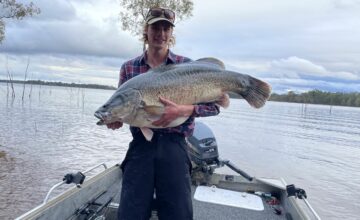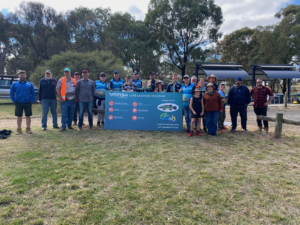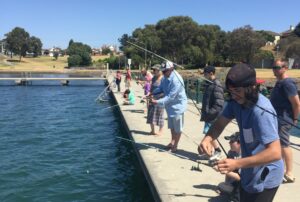August 28, 2018
It’s time to give our iconic Murray cod a rest during the upcoming closed season* from 1 September to 30 November.
During this time, cod are at their most vulnerable as they are in breeding mode. Cod will protect their nests which often makes them territorial, aggressive and easy to catch. All fishers can help Murray cod to successfully spawn and ensure great cod fishing for future generations by ensuring they do not use fishing techniques which are likely to catch cod during this time.
Murray cod can travel hundred of kilometres upstream when river levels are high for spawning. They form breeding pairs and select a nest such as a sunken log or submerged rock to lay their eggs. Males spend a lot of time guarding and tending to the fertilised eggs by continually fanning the eggs to keep them oxygenated. After spawning the fish return back to the same area and even the same snag!
Murray cod are a priority species under the Fisheries Act 1995 as they are the most iconic native freshwater fish in Victoria.
To help the cod have a rest on the nest, in known cod waters:
- Do not deliberately target cod.
- If you do accidentally catch a cod, keep it in the water and release immediately.
- Use lures smaller than 80mm for species such as yellow belly.
- Do not use surface lures.
- Use small yabbies only for species such as yellow belly.
- Do not use baits such as cheese, chicken, red meat and brad grubs.
- Use your past experience to determine your chances of encountering a cod and consider choosing another location to fish.
*Please note: closed season does not apply to Lake Eildon which is open year round.
CRAY TIME COMES TO AN END
They say all good things must come to an end. The beginning of spring, 1 September, also marks the start of the Murray spiny freshwater crayfish closed season.
Murray crayfish are considered to be a vulnerable species which is why there is a very limited open season. If you didn’t get a chance to catch a cray this season, there’s always next winter!
If you suspect any illegal fishing activity, contact the Victorian Fisheries Authority on 13FISH (13 3474).








